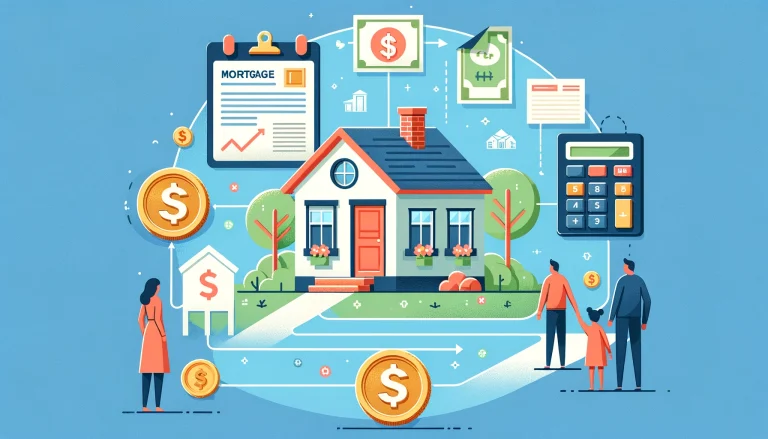If you’ve been strapped for cash lately, you may have paid closer attention to loan commercials. Specifically, you might have noticed them promote mortgage refinance more frequently.
Many of them promise a “no-cost” way to quickly acquire funds. Sadly, most people are struggling financially, they haphazardly take out a mortgage refinance.
On the other hand, wiser folks like you check blogs like ours for more information. With that said, here’s what everyone should know about refinancing.
What is a Cash-Out Refinance?
Refinancing your mortgage simply means paying off your existing home loan using a larger one.
The difference between their loan amounts provides much-needed funds.
However, you’re only allowed to borrow roughly 80-90% of your home’s equity.
Your home’s equity is determined by your house’s appraised value minus your current mortgage balance. For example, if your home is now worth $150,000 and you still have $50,000 on your existing mortgage, you have equity worth $100,000.
Because you only borrow around 80%-90% of that equity, you could take out $80,000-$90,000. In reality, that limit highly depends on your lender’s discretion, as well as your corresponding repayment plan.
Play your cards right, and cash-out refinancing could help your personal finances.
What Does Refinancing a Loan Do?
A cash-out refi lets you replace your old mortgage with a pricier one, so you can borrow their difference.
You might get a lower interest rate as well because of your new loan’s heftier price.

A mortgage refi could modify other terms and conditions of your home loan.
For example, your lender could give you a longer loan term, so you might just repay the mortgage faster.
If you carelessly perform cash-out refinancing, you might actually pay more every month instead. Depending on the borrower, refinancing can either be beneficial or detrimental to personal finance.
What Loans Can you Refinance?
Aside from your home loan, there are other credit options you could refinance. If you have an auto loan, you could refinance for better loan terms.
Though, you should check for other fees, such as closing costs. Then, take these into account when considering cash-out refinancing for the car loan.
Carefully analyze how much you’ll save using your mortgage refinance, or you might actually end up paying more.
For example, lower monthly payments could mean you’ll have an easier time repaying every month. However, it could also mean you’ll have a higher interest rate, so your total repayment might cost even more.
Meanwhile, you could also refinance your private student loans for better repayment plans.
As with refinancing mortgages and auto loans, you should have a plan behind cash-out refinancing. It could also backfire on your personal finances, and you might lose eligibility for certain government programs.
During the COVID-19 pandemic, the US federal government issued the CARES Act to help people’s finances.
It has mandated forbearance for all federal student loans, but it doesn’t cover private counterparts. However, the coronavirus outbreak caused interest rates to drop, so private student loan holders could get lower interest rates using cash-out refinancing.
If you have a federal student loan, you don’t have refi options. Alternatively, you could check other debt reduction strategies such as student debt consolidation.
Refinancing Pros and Cons
Cash-out refinancing poses benefits and risks, so you should understand them before applying. A mortgage refi could improve your current mortgage terms and grant urgently needed funds.

On the other hand, refinancing could have unfortunate consequences such as increasing your overall repayment amount.
Pros of Cash-Out Refinancing
As we’ve mentioned, you could refi your home loans, so you pay less every month.
The larger loan may come with a lower interest rate that also reduces your monthly mortgage payments. What’s more, refinancing for a home renovation project could also decrease your monthly dues.
If your home improvement project raises your property value, then it might reduce mortgage interest from taxes.
More importantly, cash from refi could fund your important expenditures. For example, this could help you shoulder your child’s college tuition.
Cons of Cash-Out Refinancing
Some people could actually get higher interest rates from mortgage refi. Moreover, you might receive private mortgage insurance (PMI), so it could add to your monthly repayment.
Cash-out refinancing could also extend the life of the loan, meaning you’ll spend more time in debt. This tempts some people into adopting horrible spending habits.
Some use cash-out refi in order to prolong their mortgage payments or to purchase a brand new vehicle.
Worse, people could lose their homes if they aren’t careful with refinancing.
Some couldn’t repay their mortgages afterward, so their homes eventually get foreclosed.
When Should You NOT Refinance?
In order to avoid potential risks, you should be aware of the worst reasons for refinancing. As we’ve mentioned, you should refi your mortgage if you just want that new smartphone.
Furthermore, it shouldn’t be used to delay paying this month’s mortgage due. Worse, you shouldn’t be too eager to hop onto the bandwagon.
For example, some people fall for the common notion that adjustable-rate mortgages (ARM) are superior to fixed-rate alternatives.
In response, they immediately get cash-out refinancing to get fixed rates instead.
While it’s true that ARMs fluctuate depending on market conditions, fixed interest rates aren’t always better. Under good economic conditions, ARMs could drop lower than fixed rates.
In their hurry to get fixed interest monthly, some folks hastily accept other mortgage terms worst than their current ones.
Avoid listening to financial hearsay and learn about your refi options from reliable sources.
Does Refinancing Hurt Your Credit?
Much like credit cards, cash-out refi could hurt your credit rating. Some lenders may conduct a hard credit inquiry on borrowers, lowering their credit scores.

Also, refinancing gives you a new home loan, meaning you’ll get a new account. This lowers the average age of your credit accounts which is a crucial factor in credit ratings.
Although, you could still recover your credit score in the long run. Repay your mortgage diligently, and you may undo the short-term deduction to your credit.
Is it Worth it to Refinance your Loan?
Are you now spooked by the risks of cash-out refinancing? Well, refinancing is worth it as long as you meticulously plan first.
Make sure to read about your available refi options extensively. Understand how their terms and conditions work, and verify if they would fit your financial situation.
Lenders usually have their own websites that may provide a refinance calculator. Use it to get a better understanding of the refi options available.
Even better, why not ask a credit counseling agency for assistance?
These are companies dedicated to helping people manage their finances better. They will give you money management advice for refi and other alternatives.
Don’t just listen to what everyone SAYS about refinancing but do what everyone SHOULD know!
Learn More About Refinancing
Why do banks want you to refinance?
With cash-out refi, could increase your monthly mortgage payments and extend the life of your loan. This means banks could earn more from you each month for a longer period of time.
Why is refinancing a bad idea?
Cash-out refi is only a bad idea if you don’t plan beforehand. You should conduct prior research and check all available refi options before applying.
Does your loan start over when you refinance?
Yes, you will restart your home loan by cash-out refinancing. You’ll replace your old mortgage with a new one. However, you may choose how long your new mortgage loan will last.
How much does a refinance typically cost?
The overall cost of refinancing depends on numerous factors, such as your existing mortgage and credit rating. You may consult the available lenders for an accurate quotation.












